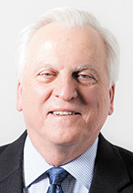Subscriber Benefit
As a subscriber you can listen to articles at work, in the car, or while you work out. Subscribe NowWhen the Probate Code Study Commission convened for its first meeting Aug. 12, it marked the return of a process meant to help Indiana legislators understand the often complex and intertwined issues regarding wills, estates, trusts, guardianships and other probate matters.
The commission had been out of service for much of the past five years, disbanded in 2014 as part of the Legislature’s move to save money. However, Sen. Eric Koch, an attorney whose practice includes estate planning and probate, realized his Statehouse colleagues benefitted from having a commission vet probate proposals and concerns before the legislative session.

So, a provision reconstituting the commission was added to the Bedford Republican’s wide-ranging probate bill. The Indiana General Assembly passed Koch’s Senate Enrolled Act 518 during the 2019 session, and by mid-August the commission, with its mix of legislators and attorneys, started tackling an agenda that called for the discussion of elder care, proposed technical corrections to the probate code and a review of uniform law.
“It’s a continuously evolving body of law,” Koch said, adding probate matters are “being impacted by changes in technology and changes in society and the culture.”
The language creating the commission was actually part of an amendment that Rep. Ed DeLaney, D-Indianapolis, offered once SEA 518 reached the House floor. When the bill arrived on Gov. Eric Holcomb’s desk, the provision had been refined a bit, but it still provided a detailed guide for selecting and replacing members.
Also, the amendment outlined the commission’s duties as studying and making recommendations to the General Assembly for changes to the probate code, trust code and any other statute regarding the administration of a decedent’s estate, guardianship, probate jurisdiction, trust or fiduciary.

The focus is important because of the complexity of probate law. Koch compared crafting probate legislation to playing the game of Jenga. Adding or removing a provision, making a technical correction or instituting policy changes can cause unintended consequences and even lead to outright mistakes.
The commission can help the Legislature keep from toppling the probate code while ensuring the necessary maintenance of the statutes. Not having the commission, said attorney Don Hopper of Harrison & Moberly LLP, runs the risk of the code becoming outdated and incapable of keeping up with the times.
Return engagement
The probate commission dates to 1952, but it was eliminated in 2014 as part of the Legislature’s effort to trim costs and rein in the work being shifted to the interim study committees.
In introducing Senate Enrolled Act 80 during the 2014 session, former Senate President Pro Tem David Long said he saw a need to reduce what had become an “overwhelming tsunami of study committees.” Legislators were pushing to get their ideas before an interim committee when their proposals failed to gain traction in the Statehouse, he said. As a result, filling the seats on the many committees was difficult and the Legislative Services Agency was going to have to hire additional personnel just to staff each committee.
Long’s bill repealed and replaced 30 study committees in favor of establishing 17 committees. The probate commission was among those scrapped.
Merrillville trust and estate attorney James Martin is a current member of the new probate commission and was a member of the former commission. He sees the group as serving a vital purpose by reviewing and offering recommendations so the legislators can be better informed.
 “The economics of having the commission screen legislation before going to the Legislature is more valuable than the dollars that might have been saved by eliminating the commission,” Martin said.
“The economics of having the commission screen legislation before going to the Legislature is more valuable than the dollars that might have been saved by eliminating the commission,” Martin said.
Through Senate Enrolled Act 31, the General Assembly took a step toward reinstituting the commission by forming the probate study subcommittee as a body under the Interim Study Committee on Courts and the Judiciary.
Former Sen. Joe Zakas, the bill’s author, told his colleagues the commission provided a benefit by studying an important area of the law that’s “somewhat dry, somewhat complicated” and trying to make it better. The oversight, he said, is helpful to legislators who are very busy handling many issues during the fast-moving legislative sessions.
However, Zakas emphasized the commission only plays a supporting role.
“This commission, it’s not the Legislature,” he said. “It makes a recommendation. I think justifiably it’s taken seriously by legislators, but the commission is advisory, it makes recommendations, it doesn’t have the final say on anything. … The General Assembly has that final say.”
‘Good quality legislation’
That advisory function remains in place with the new commission.
Hopper, also a member, explained the group serves as an entry point. In the past, the Indiana State Bar Association’s Probate, Trust and Real Property Section would take its ideas and suggestions to the commission. But when the commission sunset, the process became piecemeal, with the section and all others having to approach legislators individually.
Parts of Zakas’ original bill appears in SEA 518, namely, the membership configuration of senators, representatives and outside professionals, and the specific areas of the code the commission is directed to study.
Martin said the commission is functioning just as it did before it was erased, but with one notable difference. Private individuals and outside groups are welcomed to make presentations and bring issues for the commission to consider. At the August meeting, for example, a woman told the committee about the difficulties she experienced caring for her grandmother, and a nonprofit identified concerns about adult guardianships.
The open door enables the commission to hear from people who are impacted by the probate code, Martin said. “It brings a perspective that sometimes we don’t see in our daily practice.”
Hopper is also happy with the reconstituted commission’s work.
“I’m very optimistic,” he said. “… This will be a process that will allow for good quality legislation.”•
Please enable JavaScript to view this content.
